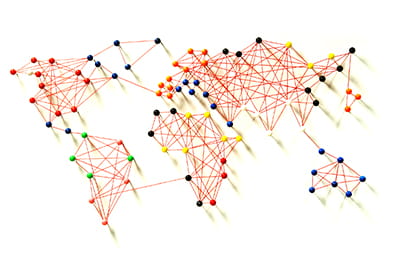GCC Trade Marks Law
 Qatar has marked a significant development in trademark practice and become the fifth Gulf Cooperation Council (GCC) country to implement the GCC Trade Marks Law in the region. The provisions of Ministerial Decree No 56 of 2023 were published in the Qatar Official Gazette on 9 July 2023 along with the implementing regulations. it also aimed at streamlining the processes for protecting and maintaining trademark registrations in Qatar. The law came into force on 10 August 2023.
Qatar has marked a significant development in trademark practice and become the fifth Gulf Cooperation Council (GCC) country to implement the GCC Trade Marks Law in the region. The provisions of Ministerial Decree No 56 of 2023 were published in the Qatar Official Gazette on 9 July 2023 along with the implementing regulations. it also aimed at streamlining the processes for protecting and maintaining trademark registrations in Qatar. The law came into force on 10 August 2023.
The main significant differences achieved by the adoption of the GCC Trademark law are is as follows:
Giving more clarity on what constitutes a well-known trademark
In accordance with worldwide norms, Article 4 of the GCC Trademark Law gives clearer standards to what constitutes a well-known trademark which ought to act as a rule for the authorities and brand owners and pursue choices and decisions more predictable.
Granting the possibility of permitting multi-class applications
Article 9(1) of the GCC Trademark Law expressly allows trademarks to be registered for one or more classes, and this provision is additionally explained in the implementing regulations. Multi-class filings and registrations are helpful for trademark owners, as they decrease administrative efforts and expenses, streamlining the application and renewal processes. Moreover, official charges and agent fees are generally lower for additional classes in multi-class applications. In any case, it is actually important that regardless of this provision, none of the other GCC states that have already executed the GCC Trademark Law have decided to take on multi-class applications, and there is no indication that Qatar will do so either.
Decreasing the opposition period from four months to 60 days
This critical change, framed in Article 14 of the GCC Trademark Law, permits third parties an adequate opportunity to review applications, prepare contentions, and submit necessary documents while additionally assisting the trademark registration process. Similarly, the opportunity to conform to examiners' conditions has been decreased from six months to 90 days (Article 12(2) GCC Trademark Law), and the opportunity to appeal an opposition decision before the court has been reduced to 30 days from 60 days (Article 15(3) GCC Trademark Law).
 Time limit for the examination of applications
Time limit for the examination of applications
This limitation is tracked down in Article 12 (4) of the GCC trademark law and Article 6 of its implementing Guidelines and would have liked to speed up the examination and consequently the registration process. Regrettably, on this event, the official fees for different services like trademark registrations, and renewals are also being increased, which is a remarkable inverse of what brand owners would have hoped for in a region where these fees are exceptionally high compared with different areas.
Temporary protection during international exhibitions
As the Paris Convention requires, Article 21 of the trademark law affirms that trademarks may be granted temporary protection during formally acknowledged international exhibitions.
Explaining that goods/services are not automatically considered to be similar just because they are in the same class or dissimilar since they are in an alternate class
 Article 9(2) of the GCC Trademark Law resolves this issue, giving a welcome differentiation to the current act of the Qatari trademark office and other GCC nations, including the UAE. The methodology of considering goods and services as similar or dissimilar dependent exclusively upon their classification frequently fails to reflect market realities. The GCC Trademark Law recognizes that goods and services within similar classes can be fundamentally different from one another, considering the conjunction of similar trademarks. On the other hand, regarding goods and services as dissimilar exclusively due to differing classes can be taken advantage of to evade rejections and misuse of the classification system. To address these concerns, the GCC Trademark Law emphasizes the requirement for a more comprehensive examination process that goes beyond superficial class-based examinations.
Article 9(2) of the GCC Trademark Law resolves this issue, giving a welcome differentiation to the current act of the Qatari trademark office and other GCC nations, including the UAE. The methodology of considering goods and services as similar or dissimilar dependent exclusively upon their classification frequently fails to reflect market realities. The GCC Trademark Law recognizes that goods and services within similar classes can be fundamentally different from one another, considering the conjunction of similar trademarks. On the other hand, regarding goods and services as dissimilar exclusively due to differing classes can be taken advantage of to evade rejections and misuse of the classification system. To address these concerns, the GCC Trademark Law emphasizes the requirement for a more comprehensive examination process that goes beyond superficial class-based examinations.
In conclusion, Qatar's adoption of the GCC Trademark Law implies a critical progression in harmonizing trademark regulations across the Gulf region, offering expanded clarity and consistency for brand owners, with prominent changes like reducing the opposition period. In any case, the concern with respect to the increased official fees remains a disputed matter for brand owners looking for trademark protection in Qatar.
 English
English
 عربي
عربي Русский
Русский 官话
官话 português
português
 Türk
Türk 






